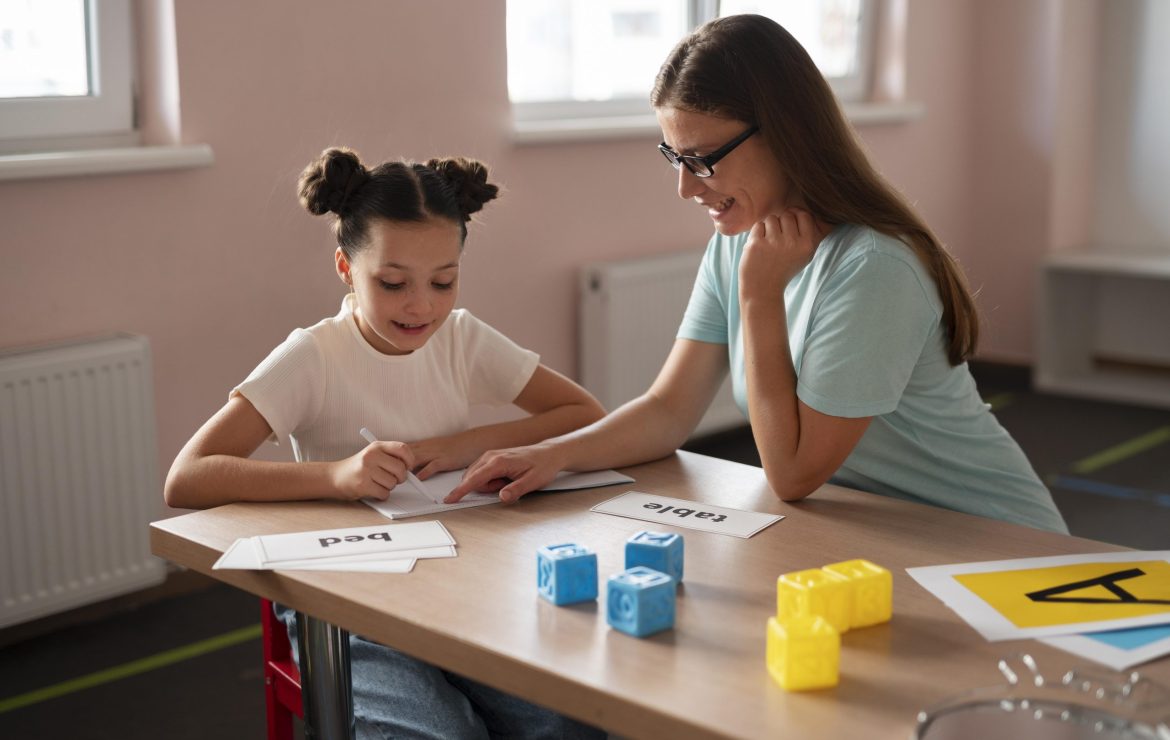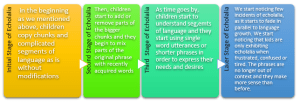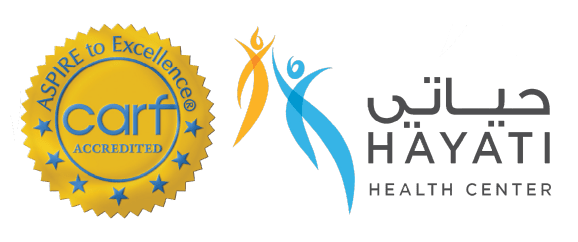Echolalia and ASD: What Is It and How to Deal with It?

A Throughout the child’s early development stages, we notice that children tend to imitate, and it’s the most significant learning method. However, kids with autism spectrum disorder repeat words, scripts from his favorite show, familiar names, and we notice that they repeat an asked question instead of giving an answer. Unlike typically developing children, Kids with ASD take a special route to learn language. Echolalia can either be immediate, right after they hear the word, or delayed echolalia, which is repeating words at a later time, and this is what makes delayed echolalia seem very unusual. Some individuals may describe it as a “socially inappropriate” behavior, that’s because children with ASD may repeat words/phrases or sentences out of context. For example, noticing the child saying “it is circle time!” while he’s watching a TV show.
So, how do I differentiate between a message a child is trying to deliver and delayed echolalia?
- Children with ASD have a special way to learn the language. Their first trials to use language is to repeat segments/parts of what is being said, as they cannot break down language into different grammatical compartments, for example, a child might say: “it’s time for the playground, everyone” every time he hears a door unlocks. He knows that the words he’s producing have to do something with door knob noises. He would repeat this phrase, even with incorrect/incomplete compartments of the sentence.
As a parent, guardian, or child services provider We can support kids who exhibit echolalia by reteaching them how to perceive/comprehend language. We can break down long Sentences into smaller segments by using a variety of methods like nursery rhymes, tapping to words & increase phonemic awareness through exercises. - Kids with ASD use echolalia to deliver a message. Kids with ASD have their unique way to communicate with. They sometimes- mean to deliver a certain message like:
- Ask/request for desired things:
A child might ask: “do you want water?” To ask for water, as he’ had heard others offer in this manner recurrently. - To initiate a social interaction
A child might imitate a script/ nursery rhyme that indicates his initiation of an interaction, or to maintain an ongoing interaction. - To draw an adult’s attention toward a matter
A child might repeat dialogue from a tv show that’ Says: “help; I need help, Mickey” to draw his parents’ attention and receives assistance as he heard this phrase in similar situations when something unusual occurs. - To protest
A child might repeat “no stop! You don’t want!” repeatedly to show his disagreement. - To answer “Yes”
A child may repeat your question to indicate: yes. For example: “do you want crisps?” this child is most probably indicating a “yes” answer.

How does echolalia progress & develop?
- Echolalia is a silver lining indication towards a more flexible language and increased stimulability of the child to learn language in the future. Scientists & researchers observed the way echolalia progresses, and noticed patterns.
Understanding the meaning behind the echolalia of your child can be very challenging and idiopathic. However, once you start noticing the context & time the incidents of echolalia occur, it will start making more sense & you’ll be able to identify the meaning along with detecting patterns. Always remember that children with ASD use echolalia to bridge their way of communication with typically developing children, using their unique understanding of the world around them. Stay tuned for the next article that will provide further maneuvers and methods to enhance the communication of kids who exhibit echolalia.
Written by: Nemah N. Assaf. BA.SLP
Resources:
- Prizant, B. (1983). Language Acquisition and communicative behavior in autism: Toward an understanding of the “Whole” of it. Journal of Speech and Hearing Disorders, 48, 296-307.
- Stiegler, L. N. (2015). Examining the echolalia literature: Where do speech-language pathologists stand? American Journal of Speech-Language Pathology, 24, 750-762.








